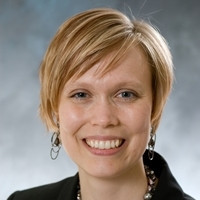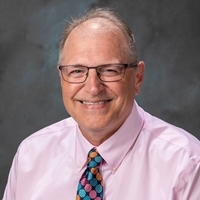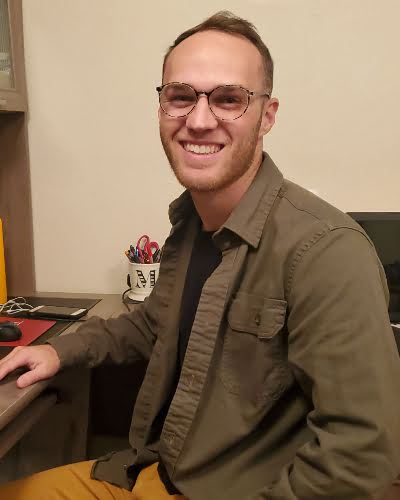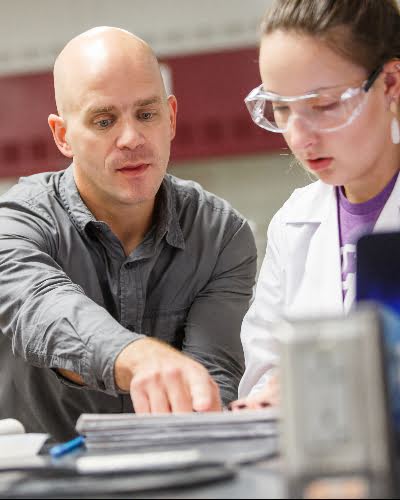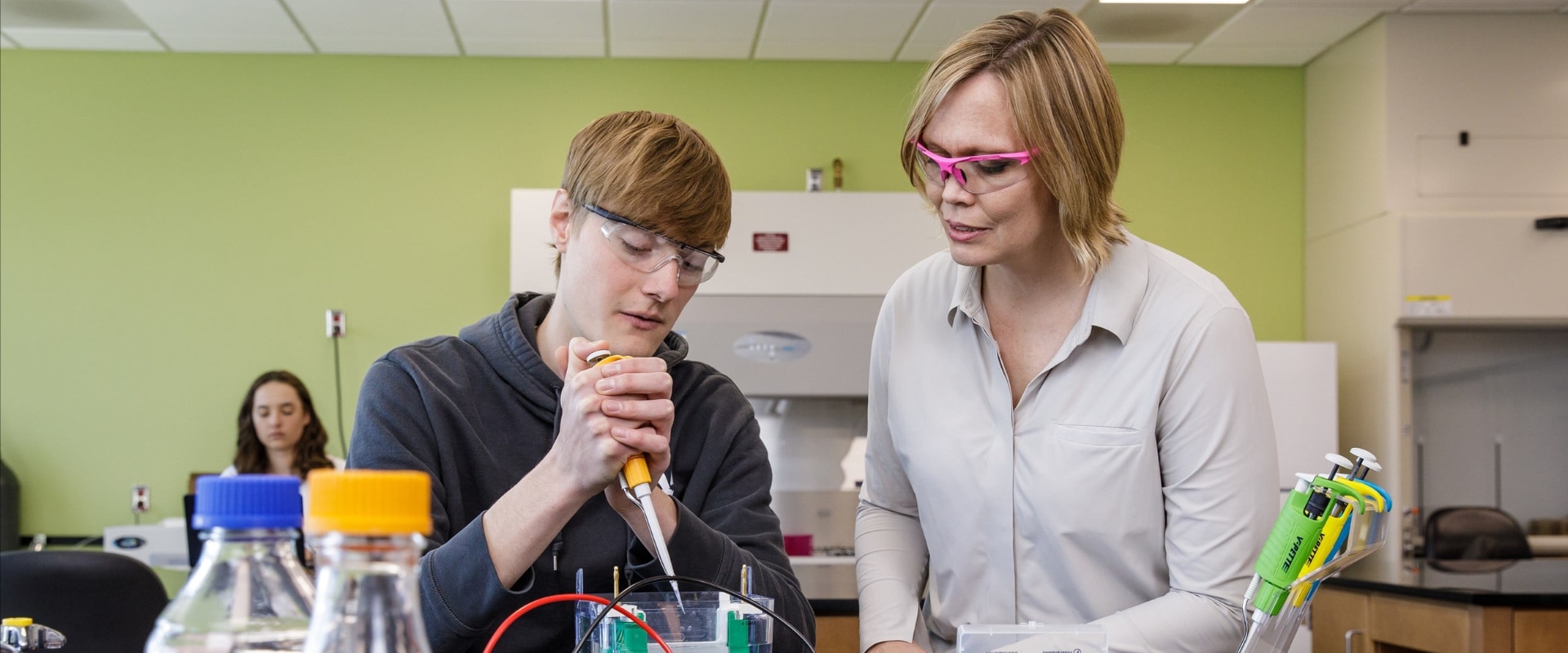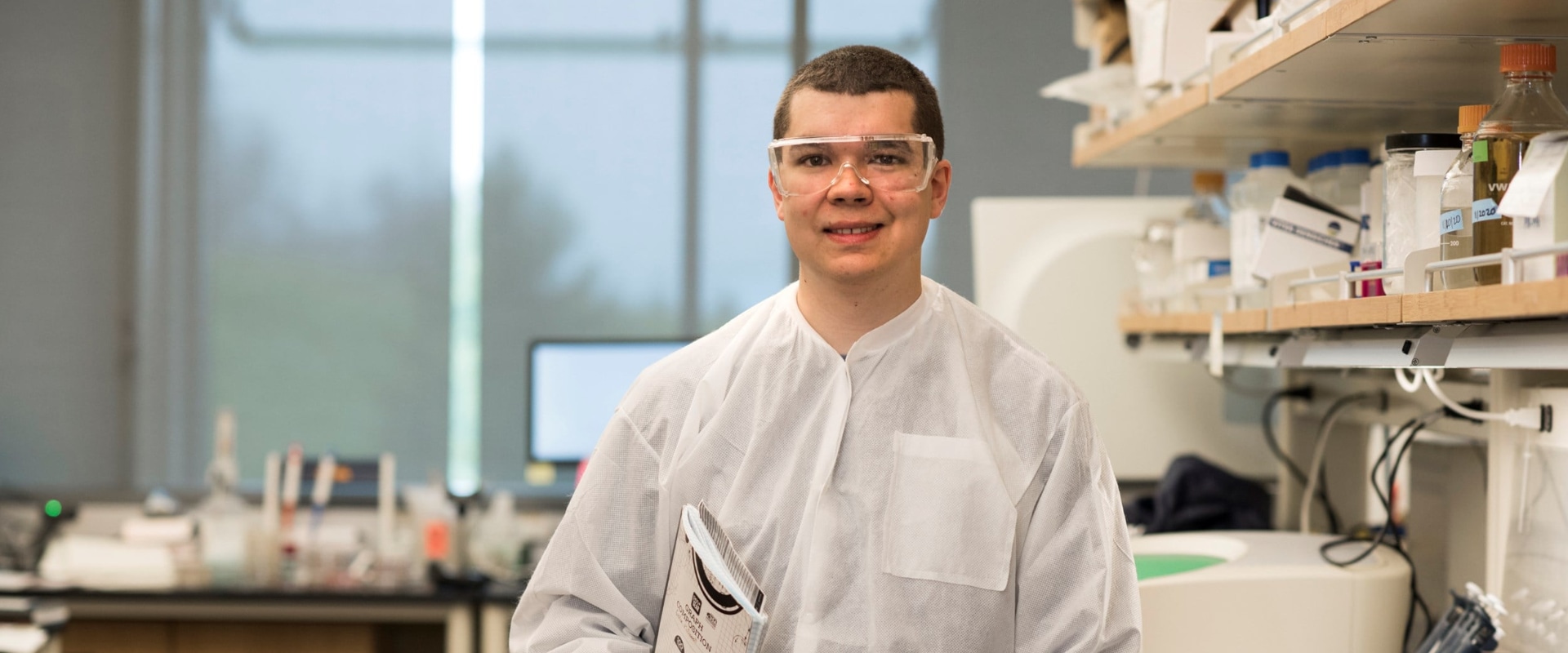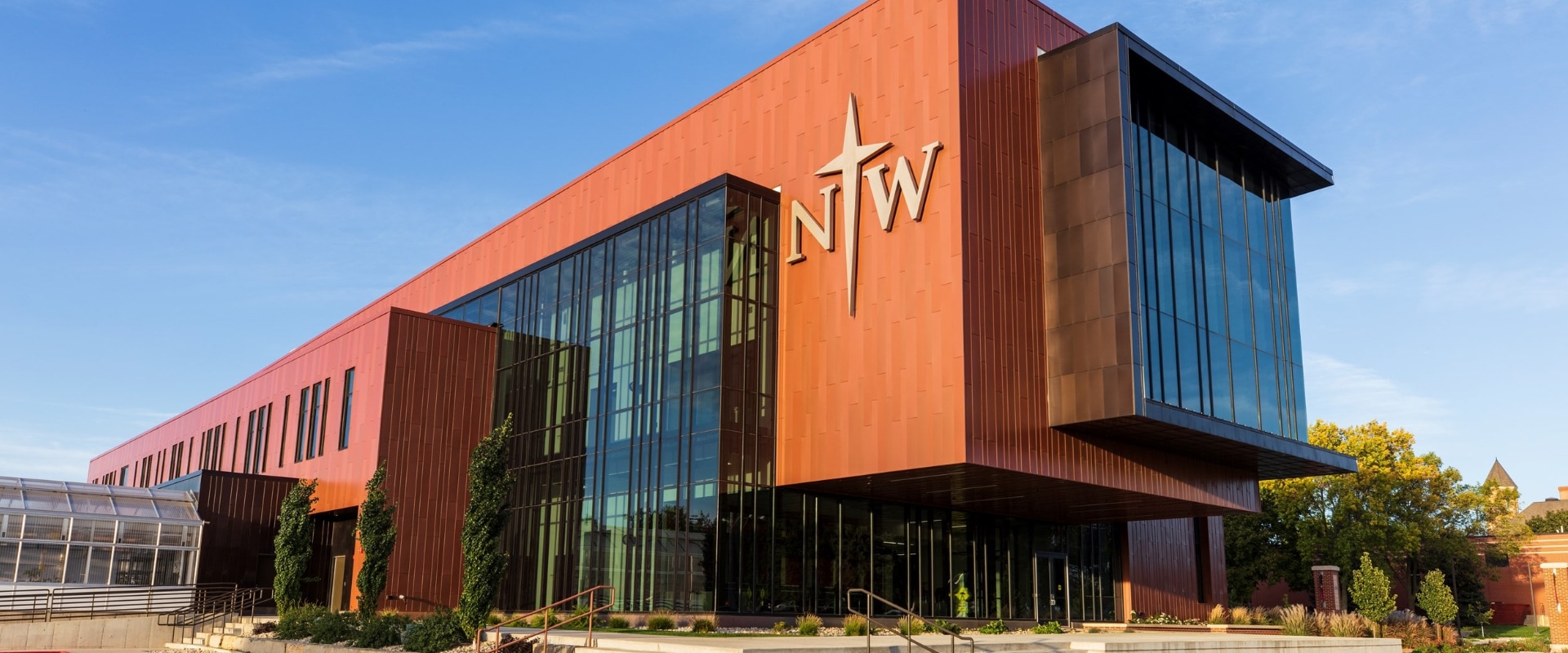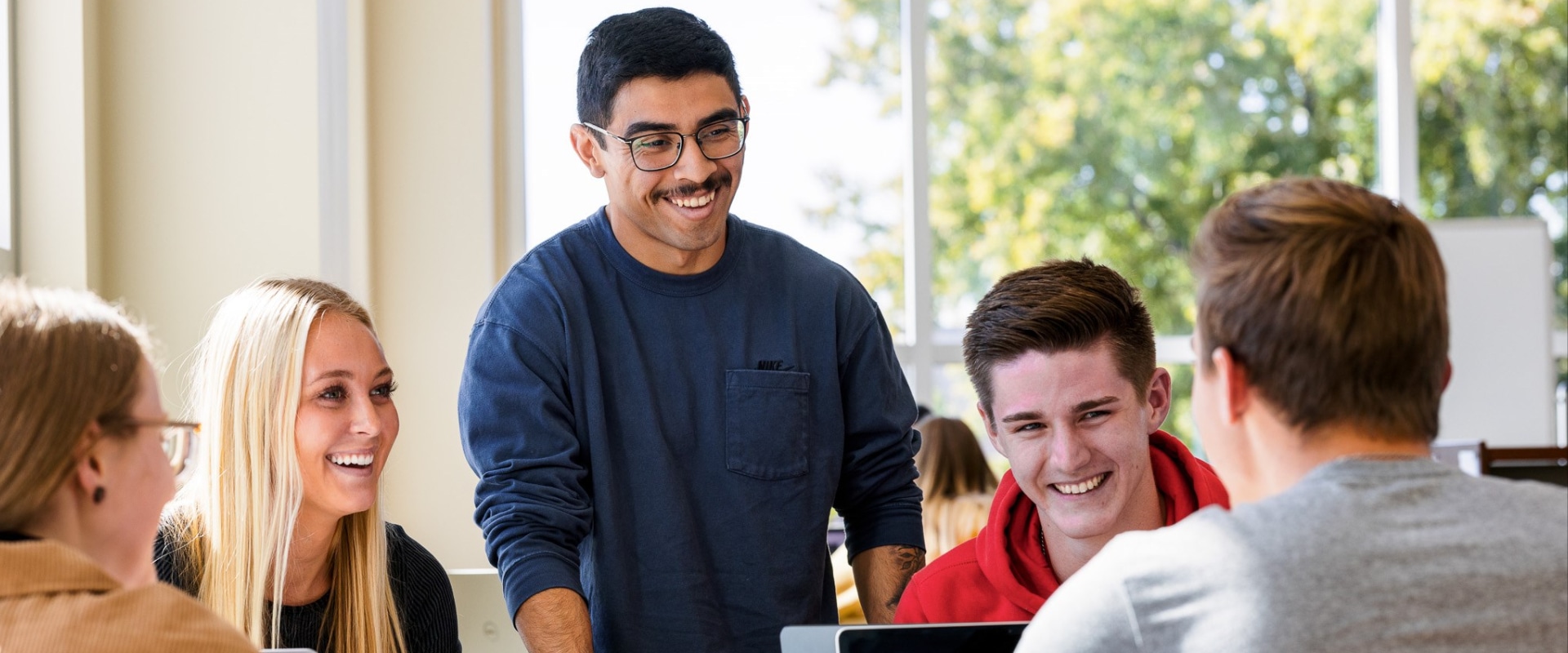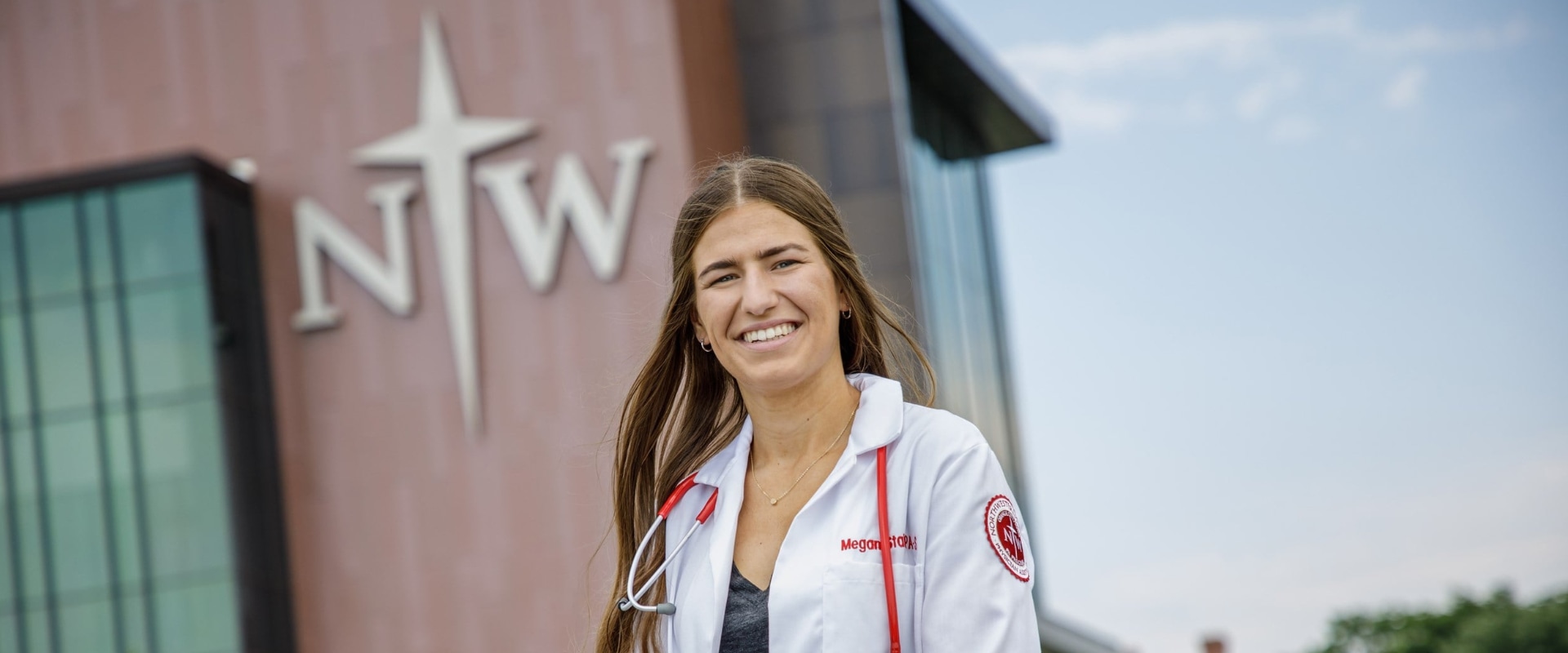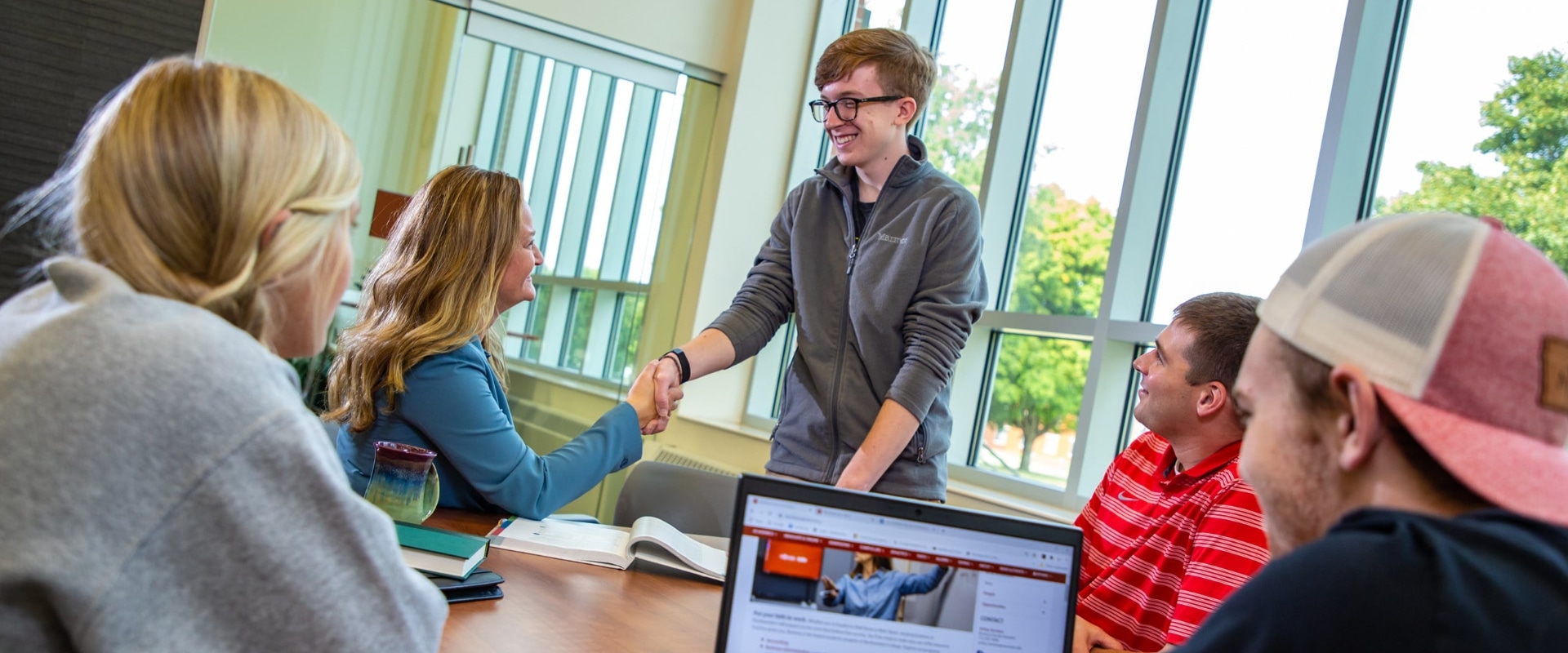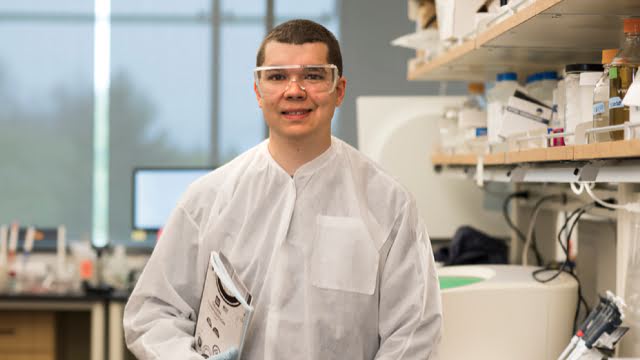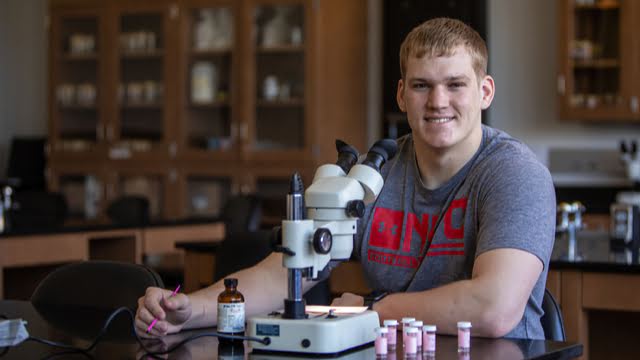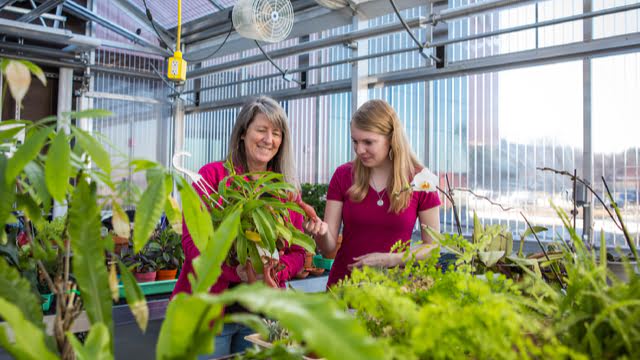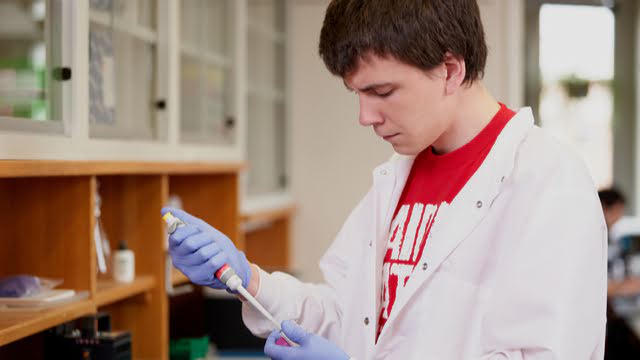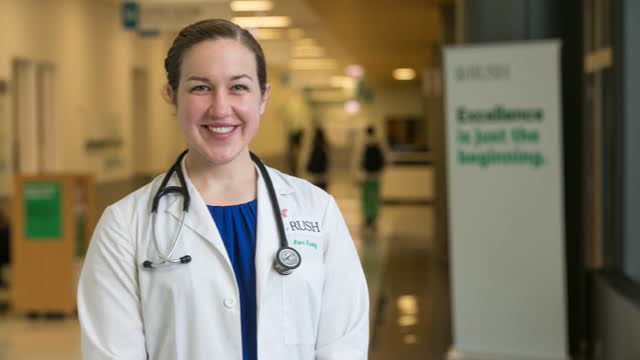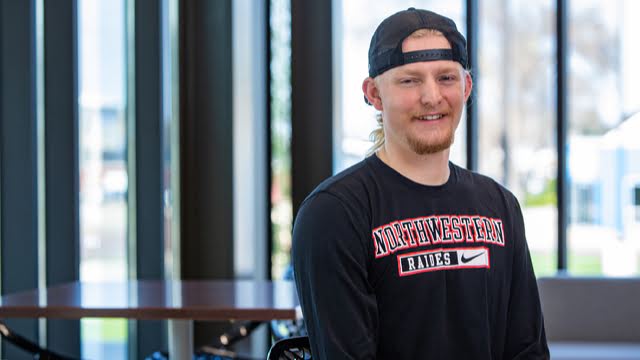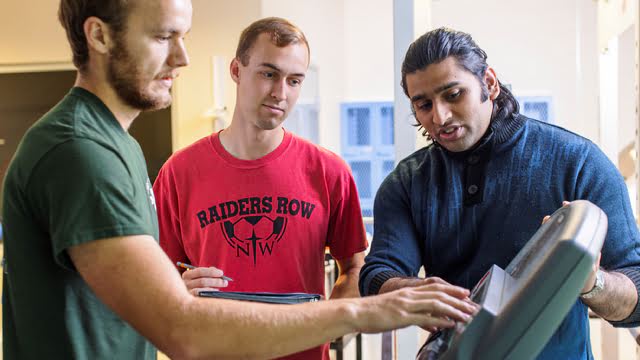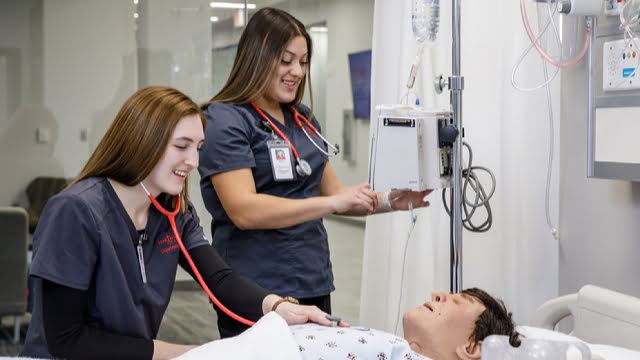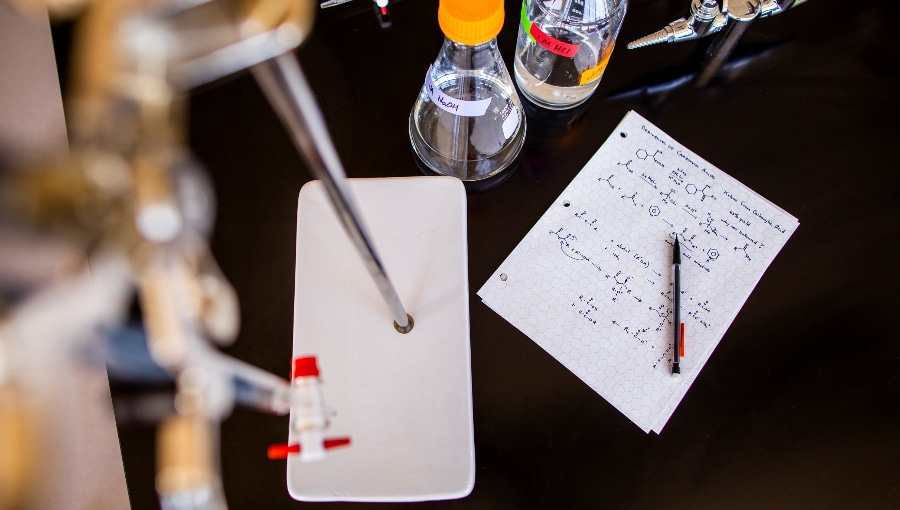
Medical Laboratory Science
Medical Laboratory Science
Medical Laboratory Science
Make a difference in the lives of patients and discern the root cause of disease. Partner with physicians and lab technicians to identify cancer, heart disease, diabetes and other medical conditions. Medical laboratory scientists are key members of the health care team; Northwestern’s program prepares you to perform that role with excellence. Spend three years learning from experienced professors in our state-of-the-art facilities, then complete a year of clinical, professional training at one of several hospital-based programs.
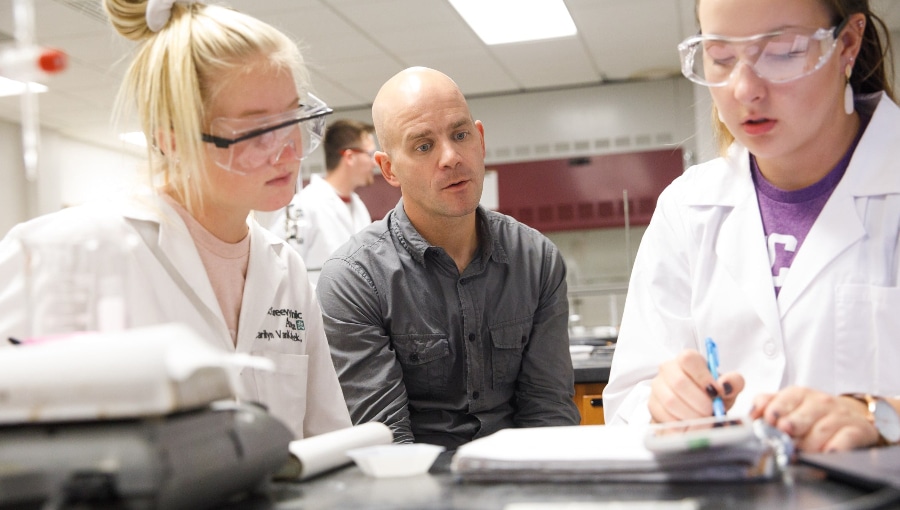
Why NWC?
Why NWC?
Why NWC?
Northwestern’s medical laboratory science major is built upon a Christian liberal arts foundation that brings matters of faith to the forefront. You’ll have opportunities to collaborate with professors on published research, gain hands-on internship experience in local labs, and use high-performance instrumentation.
To provide you with essential clinical experience, Northwestern is affiliated with award-winning hospitals like MercyOne Siouxland and Sanford Health. In the final year of your degree, you’ll take clinical courses in chemistry, hematology, immunology, microbiology and urinalysis, among others, at hospital-based schools.
Upon completion of at least three years of study and one clinical year, you’ll take a national registration exam, leading to certification in medical laboratory science. Related study options include a chemistry minor and secondary teaching endorsements in chemistry and basic science.
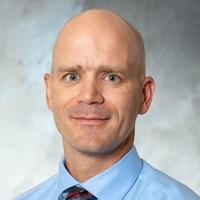
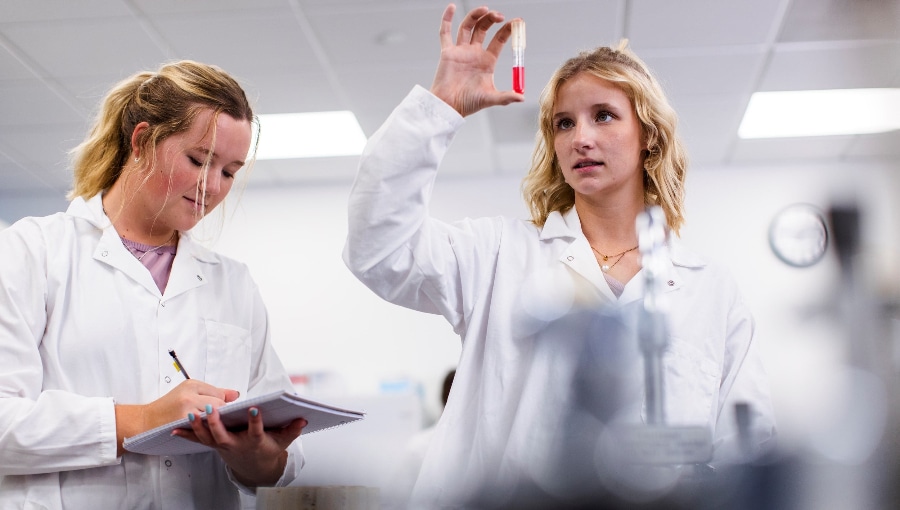
Career Outlook
Career Outlook
Career Outlook
According to the Mayo Clinic College of Medicine & Science, medical laboratory science is a high-demand field with more than 24,000 new positions expected by 2029. Laboratory scientists work in a variety of health settings, including forensic labs, blood banks, hospitals, pharmaceutical companies, veterinary practices, and with voluntary organizations like Doctors Without Borders. Additionally, lab scientists have the potential to earn a median annual wage of $54,180.
#RaidersStandOut
Experience
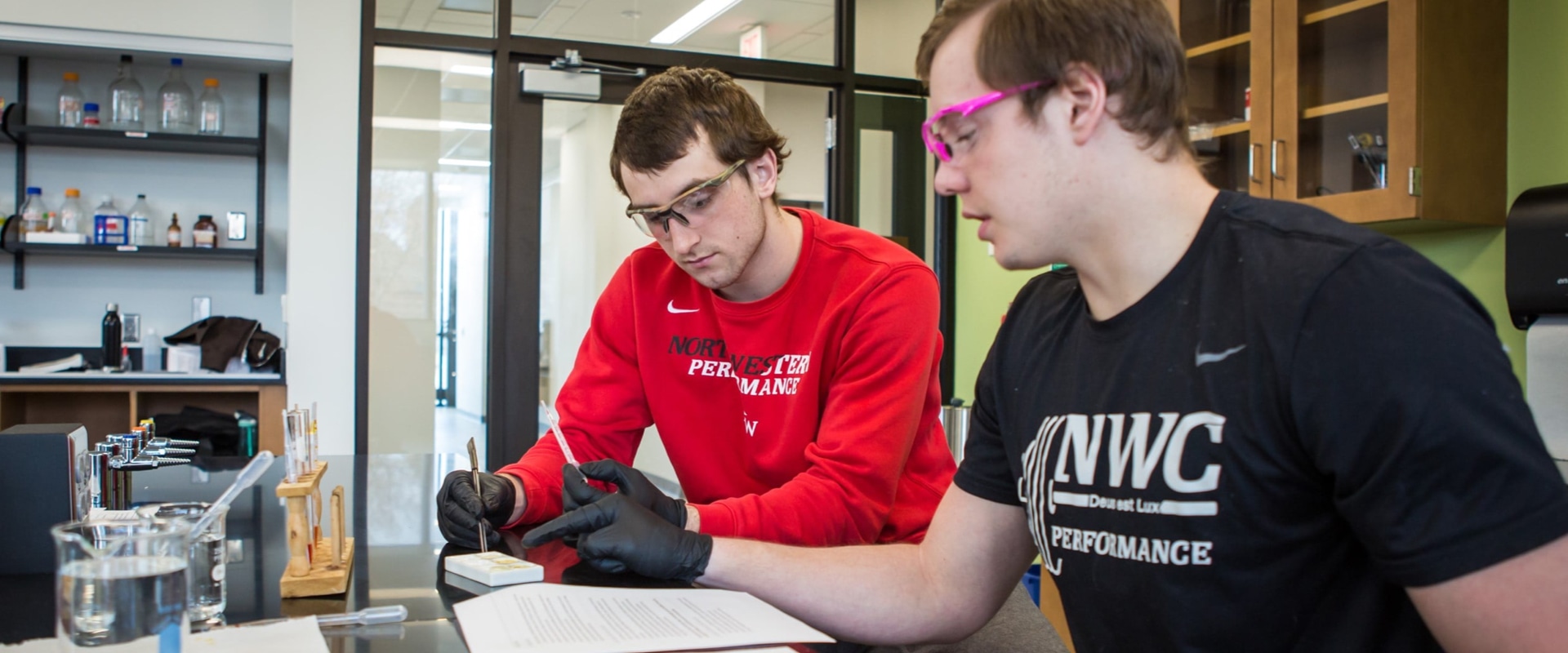
Our 4+1 program gives students the option of spending four years at Northwestern prior to the clinical year—creating additional time for research and participating in campus life. You can also choose to complete your NWC coursework in three years, moving on to clinical courses and your lab tech career one year sooner.
Experience

Our 4+1 program gives students the option of spending four years at Northwestern prior to the clinical year—creating additional time for research and participating in campus life. You can also choose to complete your NWC coursework in three years, moving on to clinical courses and your lab tech career one year sooner.
Faculty
Brilliant scholars. Committed Christians. Invested in you. That’s Northwestern’s faculty.
